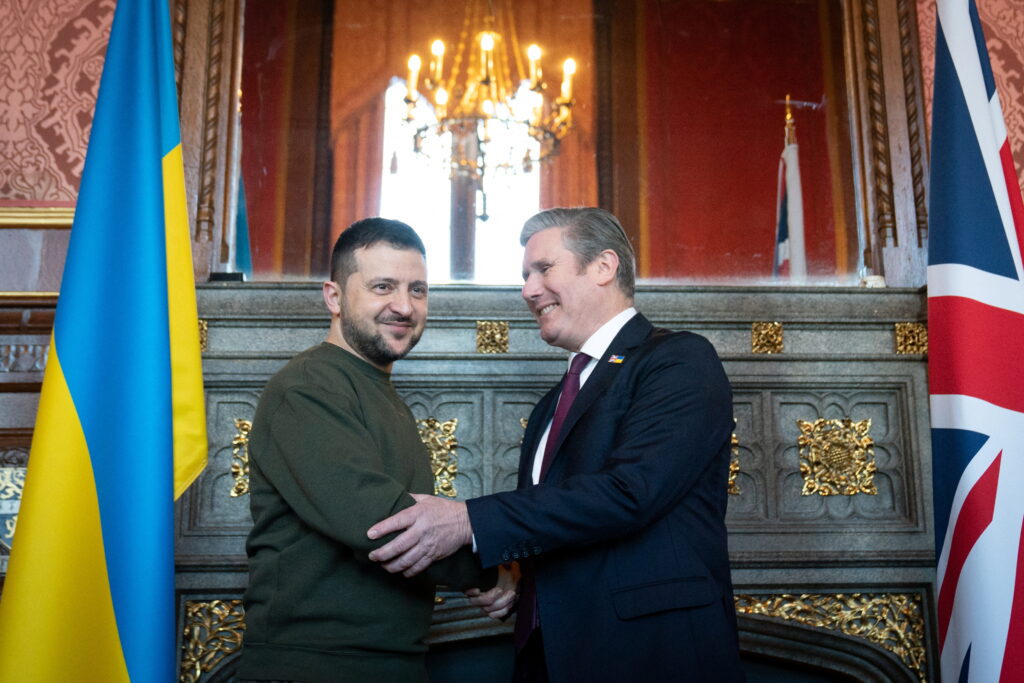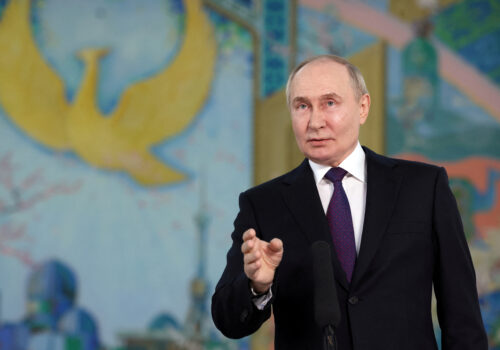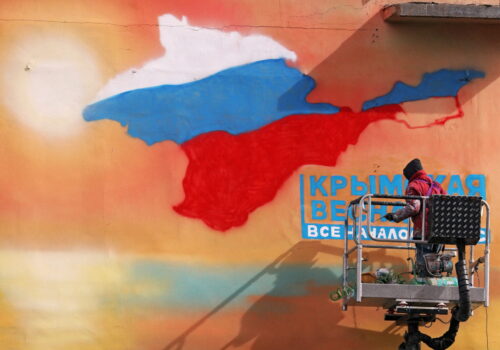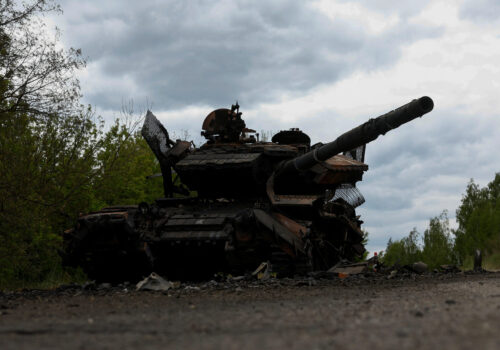Ukrainians responded calmly to news of the Labour Party’s landslide victory in the UK’s July 4 general election, reflecting widespread confidence that British support for Ukraine will continue despite the change in government in Westminster. At a time when the rise of the far right in France and the prospect of a second Trump presidency are fueling concerns in Kyiv over the future of international backing for the Ukrainian war effort, Britain is widely viewed as one of the country’s most dependable partners.
“Ukraine and the United Kingdom have been and will continue to be reliable allies through thick and thin,” commented Ukrainian President Volodymyr Zelenskyy in a post congratulating Labour Party leader Keir Starmer on his historic win. “We will continue to defend and advance our common values of life, freedom, and a rules-based international order.”
Zelenskyy was one of the first international leaders to speak to Starmer during the new British Prime Minister’s first day in office, underlining what Starmer referred to as the incoming Labour government’s “unwavering commitment” to maintaining the UK’s strong support for Ukraine. The ongoing Russian invasion of Ukraine was also reportedly high on the agenda during Starmer’s discussions with other world leaders including US President Joe Biden.
Stay updated
As the world watches the Russian invasion of Ukraine unfold, UkraineAlert delivers the best Atlantic Council expert insight and analysis on Ukraine twice a week directly to your inbox.
Starmer has long been an outspoken advocate of British backing for Ukraine. As the country prepared to mark the first anniversary of Russia’s invasion in February 2023, he visited Kyiv to offer assurances that the UK would remain a steadfast partner under his leadership. “I’ve said throughout this conflict there will be no difference between the political parties on this,” he commented while in the Ukrainian capital.
The Labour Party has vowed to continue providing Ukraine with current levels of military, financial, and diplomatic support, while also pushing to hold Russia accountable for the invasion, including support for efforts to establish an international tribunal for the crime of aggression. The Labour Party is also committed to helping provide Ukraine with a clear path toward future NATO membership.
Starmer’s stance is a continuation of the leading role played by the British government in support of Ukraine since the eve of Russia’s full-scale invasion. With the Russian military concentrated on the Ukrainian border in January 2022 and posed to invade, Britain was among the first countries to provide Ukraine with anti-tank weapons. This set the tone for British military aid to Ukraine, with the UK repeatedly setting the standard for other partners to follow by delivering new categories of weapons such as modern tanks and cruise missiles.
Britain has also provided Ukraine with vocal diplomatic backing in the international arena. During his tenure as Prime Minister, Boris Johnson was a particularly prominent supporter of the country, visiting Kyiv on numerous occasions and speaking powerfully of the threat to international security posed by Russian aggression. This advocacy helped earn Johnson something approaching cult status in Ukraine, with streets named and a pastry dish created in his honor.
Eurasia Center events

The firm stance adopted by successive UK governments reflects British public opinion, which strongly favors continued support for Ukraine. This is very much in line with British tradition. Indeed, for many Brits, Ukraine’s current struggle against Russia’s invasion echoes their own fight against Nazi Germany almost a century earlier.
Starmer will have an opportunity to emphasize his commitment to Ukraine at the 2024 NATO Summit, which takes place this week in Washington. While there is no realistic prospect of any breakthrough toward Ukrainian membership of the alliance, this high-profile event will allow the new British leader to lay out his vision for continued international support for the Ukrainian war effort.
The bipartisan consistency of British support for Ukraine comes as a welcome relief to Ukrainians. The Ukrainian military is heavily dependent on continued international deliveries of weapons and equipment, but this aid has proven vulnerable to disruption due to political shifts in various Western capitals. Amid uncertainly over the implications of elections in key partners including France and the United States, Britain’s clear position gives Ukrainians much-needed confidence as they continue to fight for national survival.
Peter Dickinson is editor of the Atlantic Council’s UkraineAlert service.
Further reading
The views expressed in UkraineAlert are solely those of the authors and do not necessarily reflect the views of the Atlantic Council, its staff, or its supporters.

The Eurasia Center’s mission is to enhance transatlantic cooperation in promoting stability, democratic values and prosperity in Eurasia, from Eastern Europe and Turkey in the West to the Caucasus, Russia and Central Asia in the East.
Follow us on social media
and support our work
Image: Labour leader Keir Starmer (right) meets with Ukrainian President Volodymyr Zelenskiy at Speaker's House in the Palace of Westminster, London, Britain. Wednesday February 8, 2023. Stefan Rousseau/Pool via REUTERS




